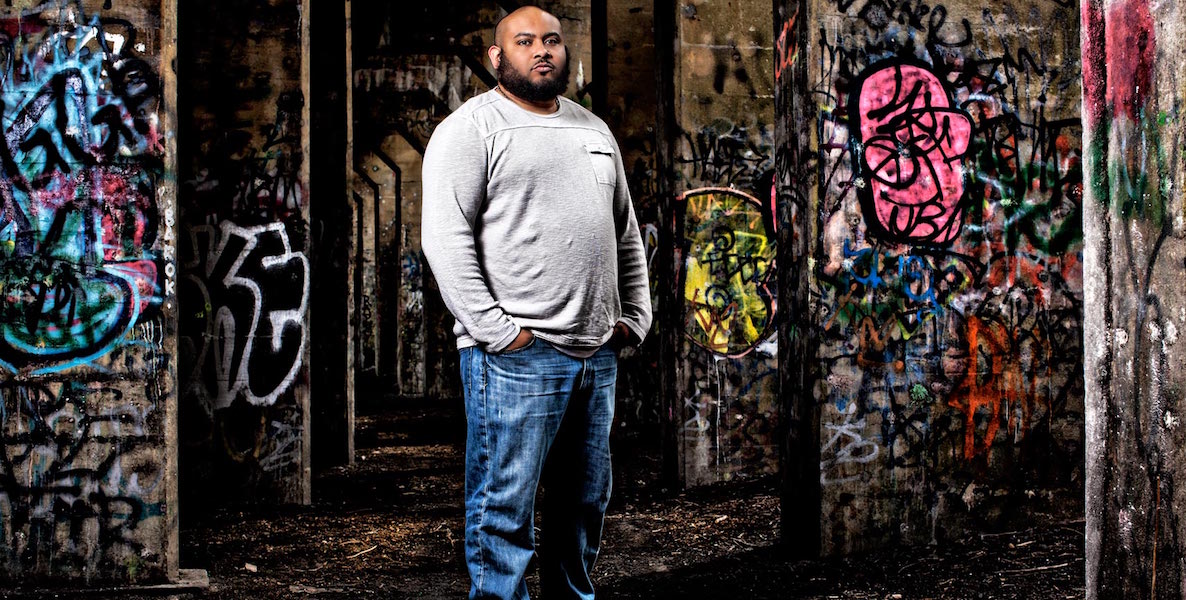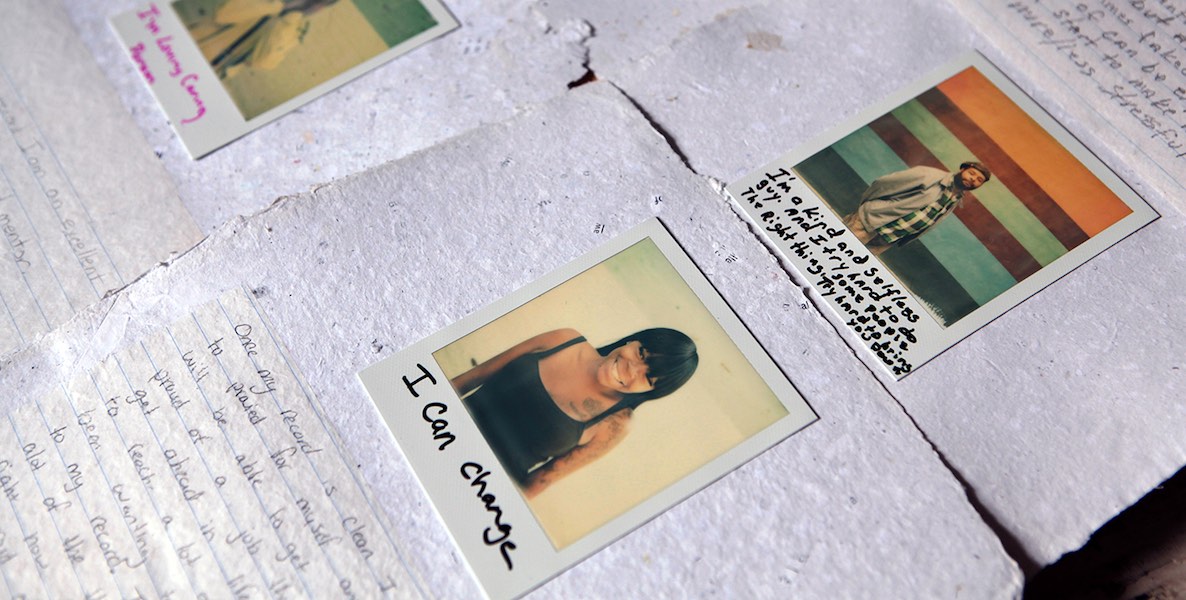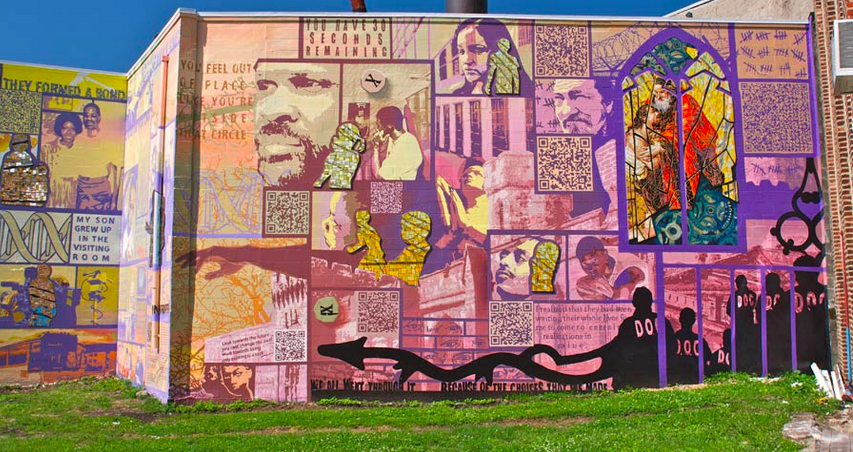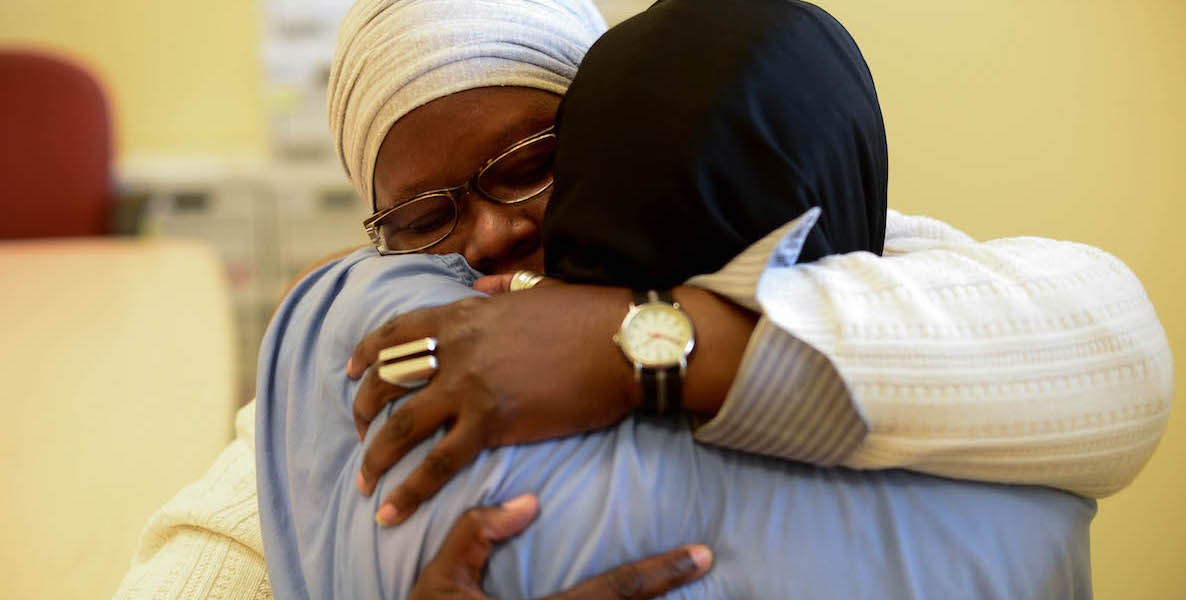Christina Wall spent 19 months at Riverside Correctional Facility for a first-degree felony. While she was in prison, she met with many different organizations that promised to help her re-enter society when she’d done her time. When she got out in June of 2015, Wall, a first-time inmate originally from New Jersey, tried to get in contact with all of these groups.
Only one gave her the time of day: I’m FREE, a woman-focused therapeutic group working to keep female former prisoners from returning to jail.
Wall says representatives from I’m FREE met her with a bag of toiletries, some clothes and a winter coat—the simple basics she needed to get through her day. And they’ve been with her every step, first as she enrolled in one of their six-week reentry counseling programs, then as she had a mini-meltdown or two during the intensive program while readjusting to life on the outside. I’m FREE gave her more than a way to healthily reevaluate her life—it gave her a group of people who she could talk to about her concerns and her fears of reintegrating, and people who would listen.
Wall, who currently lives in a therapeutic residential environment, is now a volunteer with I’m FREE, running the same clothes donation program that benefitted her when she came out of Riverside. She has found a sense of sisterhood with the folks at I’m FREE, whose name is also its mission: Females Reentering Empowering Each Other.
“The difference between I’m FREE and other programs,” says Wall, “is that they’re just there for me when I need it.”
I’m FREE is one of few reentry programs that cater specifically to female former inmates, who are almost as likely to reoffend within four and a half years as their male counterparts—75 percent of female compared to 80 percent of male ex-convicts. And female offenders are the largest-growing prison population, growing by 3.4 percent each year from 2010 to 2013.
“Once these women understand why they are angry, why they are prostituting, why they are using drugs or stealing, then we can say, ‘Now that you know this, you can do better; let’s begin to shift the behavior,’” says Furtick Wheelan.
Renaya Furtick Wheelan, who co-directs Philly’s I’m FREE program, says much of the problem with female repeat offenders can be traced back to the fact that most have sustained the kind of abuse that can’t be fixed with just a job, a car or a place to lay their head. They need special, one-on-one care. According to a study by the Correctional Association of New York, 82 percent of female convicts suffered sexual or physical abuse as children, and 75 percent have suffered severe physical abuse from a domestic partner as adults.
Enter I’m FREE, which focuses on treating the underlying issues that cause women to reoffend most, like early-life trauma. “I call these women my sisters,” says Furtick Wheelan. “I realized that there were women in the system who were fractured, broken, not dealing with the issues that led them into the system. It just became more a need of unconditional love.”
I’m FREE offers seven-week classes to inmates and averages about 20 participants per class, primarily operating out of Riverside Correctional Facility. Furtick Wheelan says that over 400 women have taken part in I’m FREE’s programming while incarcerated, and that dozens keep in touch with the program upon release, with several taking advantage of their post-release services. In this way, I’m FREE follows what is considered best practice for re-entry programs—beginning in prison, and continuing outside.
I’m FREE is part of a new surge in reentry programs, as cities around the country seek ways to lower their prison populations. How to do that—how to keep recently released men and women from returning—is not a one-size fits all solution. And as with any group in need of services, success is not always a straight line.
I’m FREE doesn’t keep track of recidivism rates for those who take part in its programs, making it difficult to fully gauge its effectiveness in the long run. And like many efforts to change the trajectory of former inmates, it is hard to know even after a few years whether the program has truly been successful.

Get More From Every Story
We include boxes in nearly every story to help you take action. Click the boxes below to see how you can make Philly better.
Indeed, I’m FREE co-founder Petrena Young says given the statistics, she expects most clients will reoffend at least once. What’s more important, she says, is whether enough counseling and behavior change will eventually keep them from returning again and again. “It’s about finding what works for these women,” says Young. “A woman might reoffend once within three days of getting out, she may reoffend 15 times. But with help, something might click.”
Furtick Wheelan has a background in social work and psychiatry; she carries a trio of degrees from Temple on the subject—a PhD in Psychoeducational Processes, an MEd in Psychoeducational Processes and a BS in Therapeutic Recreation. She co-founded I’m FREE with Young when she realized that most reentry programs were tailored to men. She says that she was attending a friend’s dissertation reading on the subject of reentry, and noticed that something was amiss.
“As we listened, we realized that she kept talking about persons, and there were no women she discussed,” says Furtick Wheelan. “There was a woman presenting this information, and yet there were no women in her study. We were in the audience, and we were allowed to ask questions. I asked where the women were, relative to her study.”
As it turned out, the presenter had tried to interview women for her study. Plenty of them. They just didn’t feel comfortable addressing their issues with an interviewer, and didn’t want to dredge up their personal histories, which they often felt were shameful or not matters for discussion. Furtick Wheelan had a bit of a come-to-Jesus moment right then and there: Women, who at that point were entering the prison system at a faster rate than men, didn’t even feel as though they could address the the real psychological problems that led them to prison. So much of the academia, it seemed, was focused on men and their re-entry.
“We wanted to know why women were entering the system at such a rate, and the more research we found that it wasn’t just women of color who were getting in the system, it was white women,” says Furtick Wheelan. “The question became ‘why?’”
According to a study by the Correctional Association of New York, 82 percent of female convicts suffered sexual or physical abuse as children, and 75 percent have suffered severe physical abuse from a domestic partner as adults.
Furtick Wheelan says that it came down to a couple of simple things when they were founding I’m FREE, a non-profit that relies on donations from donors including the Bread and Roses Community Fund, the Samuel S. Fels Fund and WOMEN’S WAY, among other groups. The fact that most reentry programs are not equipped to deal with the trauma that a lot of these women have sustained, and that many of them deal in all-encompassing therapeutic, work-oriented and sometimes religious programming. According to Furtick Wheelan, these women need more than a roof over their head or a minimum wage job: they need personal focus on the driving forces behind the behavior that put them behind bars or in halfway homes in the first place.
“If you don’t get these women to the point where they can identify the issues that led them to their behavior or their incarceration, the same thing is going to pop up. We try to get women to be able to identify the root cause of their behavior, which is something we work on,’” says Furtick Wheelan. “Once these women understand why they are angry, why they are prostituting, why they are using drugs or stealing, then we can say, ‘Now that you know this, you can do better; let’s begin to shift the behavior.’”
Furtick Wheelan calls this approach “cognitive shifting.” I’m FREE’s approach first requires women to acknowledge the problems facing them—the behaviors that get them in trouble—and then attempt to shift the behavior leading to those problems. A shoplifter, for example, will realize the reason they wear baggy clothes or carry large bags when they go into Macy’s is that it makes it easier for them to tuck things away. An addict will be made aware of the things that happened in their lives to drive them to addiction in the first place, and be given a chance and a way to avoid situations that remind them of those occurrences.
It’s never easy to take a step back and look at your most shameful, painful impulses, much less take them apart in the company of other people. But, Furtick Wheelan says, if an offender can understand the reasoning behind their behavior—if they can shift away from thinking about their problems as impulses or addictions, but rather issues that can be tackled—they can take steps to avoid that behavior in the future.
“If these women can shift slightly from their behavior, they can be put on a different path,” she says.
Header photo: Dr. Renaya embraces an I'm FREE participant at RCF. Photo by Maggie Andersen.






